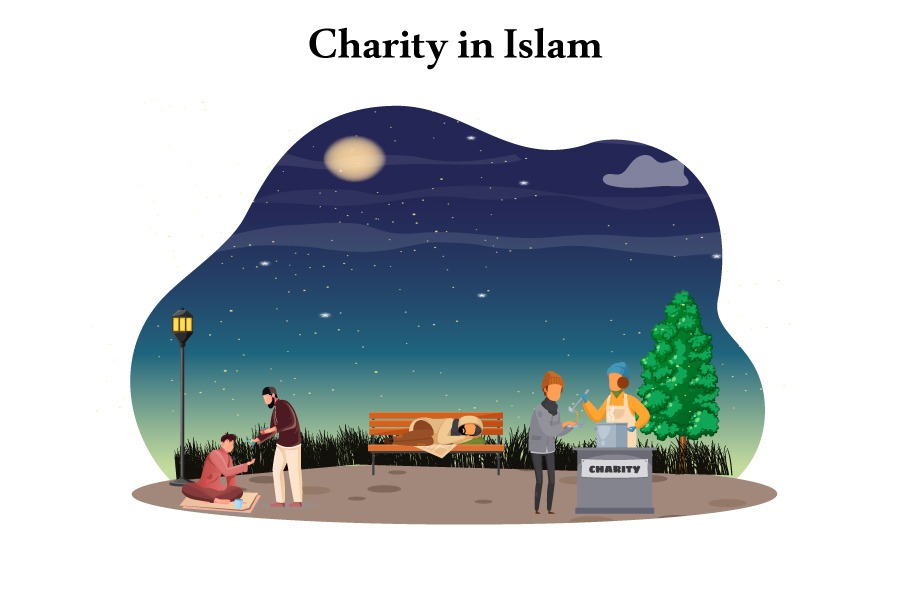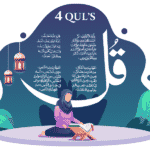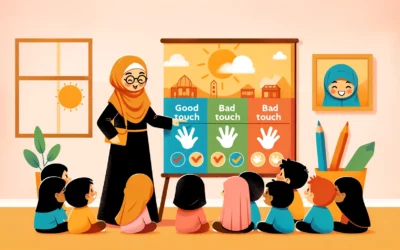In a world often consumed by materialism, a timeless practice continues to shine as a beacon of compassion and selflessness – Sadaqah in Islam. Derived from the Arabic term “charity,” Sadaqah in Islam can transform not only the lives of those in need but also the hearts of those who give. As we delve into the lessons from the Hadith and Quran, we discover ten reasons why embracing the practice of regular Sadaqah can be a transformative journey.
Benefits of Giving Sadaqah in Islam
1. A Reminder of Gratitude:
In the Quran, Allah(swt) says
“Allah will reward the grateful.” – Quran (14:7):
Indeed, it is true that regularly offering Sadaqah develops a sense of gratitude within us. As we ponder the blessings bestowed upon us, we acknowledge our responsibility to extend these blessings to those in need. This virtuous act is a constant reminder of Allah’s boundless generosity, nurturing a deep sense of humility and contentment within us. Therefore, each time you give Sadaqah in Islam, remember that Allah holds a special place for those who give.
2. Purification of Wealth:
Those who spend their wealth in the Way of Allah and do not follow up their spending by stressing their benevolence and causing hurt will find their reward secure with their Lord. They have no cause for fear and grief. Al Quran (2:262)
The above ayah clears two points to us:
Firstly, the reward of our giving hinges on our intention (niyyah). Hence, when offering Sadaqah, our intention should solely revolve around pleasing Allah and not seeking earthly benefits.
Secondly, Allah multiplies the rewards for those who give willingly and without hesitation. Whatever we choose to give in the form of Sadaqah is under the divine care of Allah (swt) Himself. Isn’t it a beautiful feeling itself?
3.Developing a sense of Empathy:
Prophet (صَلَّى اللّٰهُ عَلَيْهِ وَسَلَّمَ) said:
“None of you will have faith until you love for your brother what you love for yourself.” (Sahih Al Bukhari and Sahih Muslim).
Sadaqah bridges the gap between the haves and have-nots, which helps in developing empathy and understanding across communities. It’s a proper system crafted by Allah to test the patience of those with limited resources and the compassion of those in a position to provide care.
4.Ensuring Allah’s Mercy on the Day of Resurrection:
Prophet (صَلَّى اللّٰهُ عَلَيْهِ وَسَلَّمَ) said:
“The believer’s shade on the Day of Resurrection will be their charity” (Hadith, Tirmidhi).
Imagine the day of Qiyammah, when there will be no shade except the shade of Allah, and you get the shade as the reward for your charity. How wonderful it is to even think about that. So, why not ensure our comfort by giving Sadaqah in our life? It signifies submission to Allah’s will and invites His blessings, leading to inner peace and spiritual growth.
5. Developing Generosity in Children:
Prophet (صَلَّى اللّٰهُ عَلَيْهِ وَسَلَّمَ) said:
“A man’s wealth is never diminished by charity.” (Tirmidhi)
Children learn by example. Regular Sadaqah sets the foundation for a generous mindset, teaching the younger generation the joy of giving.
6. Empowering the Marginalized:
The alms are meant only for the poor and the needy and those who are in charge thereof, those whose hearts are to be reconciled, and to free those in bondage, and to help those burdened with debt, and for expenditure in the Way of Allah and the wayfarer. This is an obligation from Allah. AlQuran (9:60)
Sadaqah in Islam empowers the marginalized by providing essential support. This aligns with the Quranic principle of socioeconomic justice and passion for sharing with others.
7. Eternal Rewards Promised:
“The example of those who spend their wealth in the way of Allah is like a seed which grows seven spikes.” Quran (2:261):
Regular Sadaqah in Islam is an investment in the Hereafter, promising eternal rewards far exceeding the initial contribution.
8: A way to Remove Sins:
On the final Day of Judgment, we will be answerable for every slip-up we’ve made, whether big or small. Despite our best efforts, being human means errors are bound to happen. That’s why a regular dose of Sadaqah is like a cleansing shower for our souls. The Prophet (saw) dropped some wisdom, saying,
“Giving charity in Islam is like dousing flames with water”.[Ibn Majah]
Even a tiny bit of charity in Islam, like ‘half a date’ [Bukhari], can do the trick if you’re coming from a heartfelt place. It’s like scrubbing off your mistakes and shielding you from the heat of the Fire.
9. Building Stronger Bonds Between Communities:
“The believer to another believer is like a building whose different parts support each other.” Hadith (Muslim)
Regular Sadaqah in Islam builds a strong connection between givers and takers. By uplifting the less fortunate, communities thrive and flourish.
10. Ensuring Allah’s Help in your Matters:
Prophet (صَلَّى اللّٰهُ عَلَيْهِ وَسَلَّمَ) said:
“Allah is in the aid of His servant as long as His servant is in the aid of his brother.” Bukhari
Sadaqah aligns us with the values of Islam – compassion, justice, and unity. It reflects our dedication to Allah’s teachings.
As we draw inspiration from the Quran and Hadith, we realize that Sadaqah in Islam transcends monetary value. By giving regularly, we embody the essence of Islam and the teachings of our Prophet Muhammad (peace be upon him). Just as the Quran and Hadith guide us, embracing the practice of Sadaqah reminds us of our purpose – to be merciful, charitable, and compassionate beings. In this pursuit, we transform the lives of others and our hearts, creating a legacy of love and empathy that echoes through generations.

















